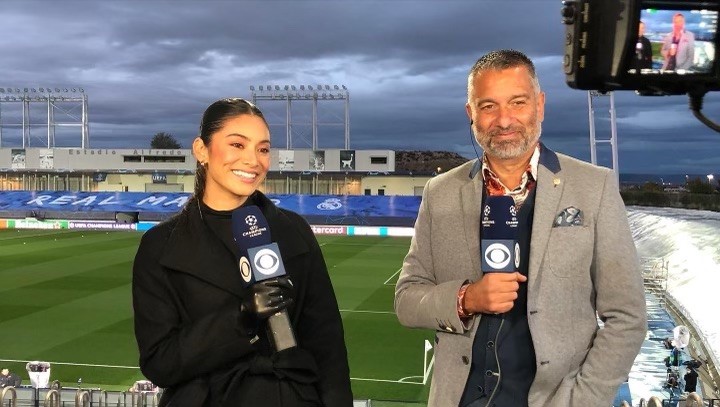Professional sports journalism continues to evolve, and few embody this transformation more powerfully than Jenny Chiu, whose remarkable journey from Mexican youth national team captain to prominent CBS Sports reporter reflects the changing landscape of soccer coverage in North America. Her unique perspective on the sport’s development, particularly in women’s soccer, offers invaluable insights into the game’s future.
Chiu’s path to becoming a respected voice in soccer journalism defied conventional wisdom. Despite being advised to focus on more established American sports like football or basketball after college, she remained steadfast in her commitment to soccer. Her dedication has proven prescient as the sport’s popularity continues to surge across the United States, particularly in women’s soccer.
The significance of Emma Hayes’ appointment as the USWNT head coach represents a pivotal moment in American soccer history, according to Chiu. Having closely followed Hayes’ successful tenure at Chelsea through her role creating content for Chelsea USA, Chiu possesses unique insight into the manager’s methods and philosophy. She emphasizes how Hayes’ arrival comes at a crucial juncture for U.S. women’s soccer, bringing much-needed fresh perspectives and the credibility to implement significant changes.
Her analysis of Hayes’ impact goes beyond mere tactical observations. Chiu highlights how the new coach’s European pedigree and previous American experience create a perfect blend for implementing necessary reforms within the U.S. soccer system. The timing of Hayes’ appointment, following recent setbacks in international competitions and a decline in world rankings, positions the team for a potential resurgence under experienced leadership.
The growth of women’s soccer in the United States particularly excites Chiu, who witnesses firsthand the sport’s expanding viewership and stadium attendance. However, she identifies a unique challenge in broadcasting: balancing content for newcomers while respecting long-time followers. Her approach advocates assuming viewer knowledge rather than risk alienating dedicated fans through over-explanation.
Drawing from her personal experience as captain of Mexico’s U17 national team, Chiu offers fascinating insights into the development of women’s soccer in Mexico. She recalls being instructed to publicly advocate for a domestic league during press conferences, highlighting the stark contrast with today’s thriving Liga MX Femenil. The recent women’s final drawing 50,000 fans demonstrates remarkable progress from those early days of advocacy.
Chiu’s observation about the unique power of Latin American fan engagement provides a compelling perspective on market dynamics. She notes how Liga MX female players often command larger social media followings than their NWSL counterparts, reflecting the sport’s potential to challenge traditional cultural norms and empower women in traditionally machismo societies.
The conversation around international tournaments and player welfare showcases Chiu’s nuanced understanding of the sport’s challenges. While acknowledging the need for more meaningful international competitions to maintain growth, she expresses concern about the physical toll on players, particularly regarding the recent spike in ACL injuries among female athletes. Her analysis extends beyond simple scheduling issues to encompass broader questions about equipment design and medical support specific to women’s needs.
As a broadcaster with Chinese and Mexican heritage, Chiu represents a new generation of diverse voices in sports media. Her multilingual abilities and multicultural background enable her to connect with varied audiences and bring fresh perspectives to American soccer coverage. This diversity in broadcasting reflects the sport’s global nature and its potential to unite different communities within the United States.
Looking ahead, Chiu’s journey and insights suggest an exciting future for soccer in North America. The combination of increasing investment, growing viewership, and evolving media coverage indicates a sport on the rise. Her success story serves as both an inspiration and a reminder of soccer’s potential to break down barriers and create new opportunities across cultures and generations.
The transformation from advocating for basic infrastructure as a player to analyzing the sport’s highest levels as a broadcaster mirrors the broader evolution of soccer in North America. Through Chiu’s lens, we see not just how far the sport has come, but also its vast potential for continued growth and impact on both sides of the border.



